Ankur Rathee breaking stereotypical views playing new characters
Ankur Rathee has been in a number of noteworthy films. He was recently seen in the cricket oriented series Inside Edge 3 on Amazon Prime.Prior to Inside Edge 3, the actor appeared in Thappad alongside Taapsee Pannu. His roles in films such as Four More Shots Please, Made in Heaven, and Undekhi, as well as the second season of City of Dreams, helped him gain notoriety and a large female fan following.
In an exclusive interview with Adgully, Ankur Rathee, who plays Allen Menezes, a gay rights lawyer and activist in love with a cricketer who is frightened of coming out in 'Inside Edge.' He talks about how from his childhood he used to play different characters, how his journey has been this far and how OTT platforms have financed stories and storytelling styles. Currently he is filming 'Shehzada,' a film directed by Rohit Dhawan and starring Kartik Aaryan and Kriti Sanon.
What inspired you to become an actor? Was it your childhood dream to work in the creative field?
I've only ever wanted to be an actor, but I lacked the courage to voice it for most of my life. I had a very vivid imagination growing up. I would make up high stakes scenarios and play different characters with strange voices, talking to myself alone in my room. This was long before I even knew what acting was. I used to throw myself off furniture playing both the hero and villain in a fight sequence. This path was inevitable for me. I still play make-believe alone in my home. That child in me is still very much alive.
It’s been a wonderful journey for you. Can you describe the journey in brief? What were the learnings, and new insights learned, and challenges faced?
Banat, banat, ban jai. It takes a village, and at the same time you're all alone in this. I believe I've probably served as my own greatest obstacle. Overthinking and not believing in myself enough have probably done me more harm than any competition in this industry. You realize quickly that the statistics don't matter when your faith and work ethic is unshakable.
What are the ways in which OTT platforms are democratizing the film industry by giving opportunities/ new avenues to budding artists, independent filmmakers, etc.?
More work requires more artists. The industry had to branch out in order to meet the needs of modern day viewers. OTT platforms have financed stories and storytelling styles that the "old guard" overlooked. This has created an opportunity for more diverse talent in India.
I've only ever wanted to be an actor, but I lacked the courage to voice it for most of my life. I had a very vivid imagination growing up. I would make up high stakes scenarios and play different characters with strange voices, talking to myself alone in my room. This was long before I even knew what acting was. I used to throw myself off furniture playing both the hero and villain in a fight sequence. This path was inevitable for me. I still play make-believe alone in my home. That child in me is still very much alive.
It’s been a wonderful journey for you. Can you describe the journey in brief? What were the learnings, and new insights learned, and challenges faced?
Banat, banat, ban jai. It takes a village, and at the same time you're all alone in this. I believe I've probably served as my own greatest obstacle. Overthinking and not believing in myself enough have probably done me more harm than any competition in this industry. You realize quickly that the statistics don't matter when your faith and work ethic is unshakable.
What are the ways in which OTT platforms are democratizing the film industry by giving opportunities/ new avenues to budding artists, independent filmmakers, etc.?
More work requires more artists. The industry had to branch out in order to meet the needs of modern day viewers. OTT platforms have financed stories and storytelling styles that the "old guard" overlooked. This has created an opportunity for more diverse talent in India.
What kind of trends are you foreseeing to emerge in the film industry in 2022?
I can't speak to 2022, but I think in the future we'll see more versatility in how we tell love stories. The way a young couple flirts, fights, or falls in love is different today than it was 25 years ago, but it seems generally our love stories haven't kept pace with that evolution. Male-female dynamics and our relationship with our sexuality has changed. Efforts are being made of course, but I can't help but notice filmmakers either overcorrecting or falling into the same tropes. In the future our reliance on musical numbers to prop up a romance might also give way to more nuanced moments and conflicts between a couple that pull at our heart strings. The rom-com is a genre that I sincerely hope we continue to improve and invest in.
The Covid-19 has been a blessing in disguise for OTT platforms. With theaters shut, OTT release has been the only way out. But, once life returns to normalcy after the pandemic, do you think the audience will stick to OTT platforms as we see today? What is your take on this?
There's no turning back. Theaters will survive, but the convenience and array of options available at your fingertips via OTT is something audiences expect now. Not to mention, the algorithms some of these platforms use to recommend personalized content is very effective. Much like social media, as a culture we are hooked, and that's not always a good thing.
We have seen an exponential rise of regional content on OTT platforms. With subtitling, language is no longer a barrier for regional filmmakers to showcase their work to the world. Similarly, Hindi films/shows can be watched by regional audiences. How will this ‘cross-pollination’ help regional content generators?
It's going to help everyone actually. The cinematic world just shrunk. If you were flaunting your film's success amongst Hindi speakers, now you have the opportunity to see how it performs with an international audience. How does the film stack up against international cinema? Some would say that shouldn't matter, but if we're being honest sometimes it can reveal some bitter truths, but also pleasant revelations. On the other hand, if you believe you have great content but a small regional audience, now you'll have access to the world's viewers to prove your merit. Either way you look at it, it's always great to have more feedback to improve upon our creative process.
What are your upcoming projects in the pipeline? Have you signed up with any OTT platforms for any projects?
I'm currently shooting with Kartik Aryan and Kriti Sanon for "Shehzada", set to release Nov 2022.
I can't speak to 2022, but I think in the future we'll see more versatility in how we tell love stories. The way a young couple flirts, fights, or falls in love is different today than it was 25 years ago, but it seems generally our love stories haven't kept pace with that evolution. Male-female dynamics and our relationship with our sexuality has changed. Efforts are being made of course, but I can't help but notice filmmakers either overcorrecting or falling into the same tropes. In the future our reliance on musical numbers to prop up a romance might also give way to more nuanced moments and conflicts between a couple that pull at our heart strings. The rom-com is a genre that I sincerely hope we continue to improve and invest in.
The Covid-19 has been a blessing in disguise for OTT platforms. With theaters shut, OTT release has been the only way out. But, once life returns to normalcy after the pandemic, do you think the audience will stick to OTT platforms as we see today? What is your take on this?
There's no turning back. Theaters will survive, but the convenience and array of options available at your fingertips via OTT is something audiences expect now. Not to mention, the algorithms some of these platforms use to recommend personalized content is very effective. Much like social media, as a culture we are hooked, and that's not always a good thing.
We have seen an exponential rise of regional content on OTT platforms. With subtitling, language is no longer a barrier for regional filmmakers to showcase their work to the world. Similarly, Hindi films/shows can be watched by regional audiences. How will this ‘cross-pollination’ help regional content generators?
It's going to help everyone actually. The cinematic world just shrunk. If you were flaunting your film's success amongst Hindi speakers, now you have the opportunity to see how it performs with an international audience. How does the film stack up against international cinema? Some would say that shouldn't matter, but if we're being honest sometimes it can reveal some bitter truths, but also pleasant revelations. On the other hand, if you believe you have great content but a small regional audience, now you'll have access to the world's viewers to prove your merit. Either way you look at it, it's always great to have more feedback to improve upon our creative process.
What are your upcoming projects in the pipeline? Have you signed up with any OTT platforms for any projects?
I'm currently shooting with Kartik Aryan and Kriti Sanon for "Shehzada", set to release Nov 2022.
Entertainment
4 MINUTES TO READ




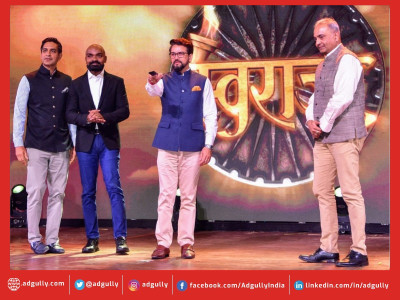
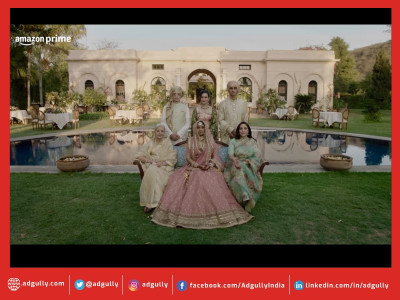



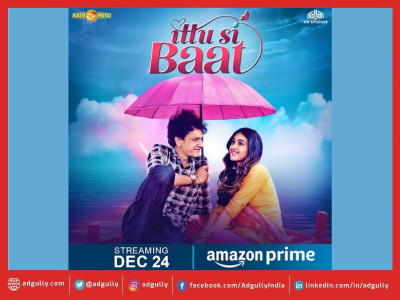
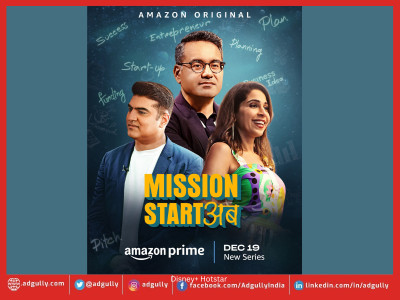
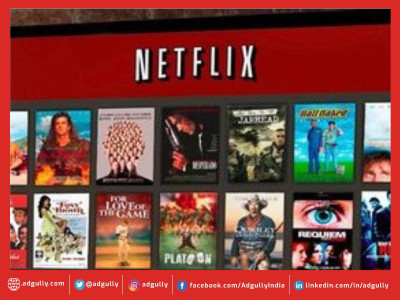
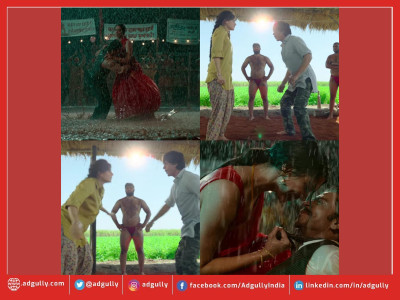




Share
Facebook
YouTube
Tweet
Twitter
LinkedIn